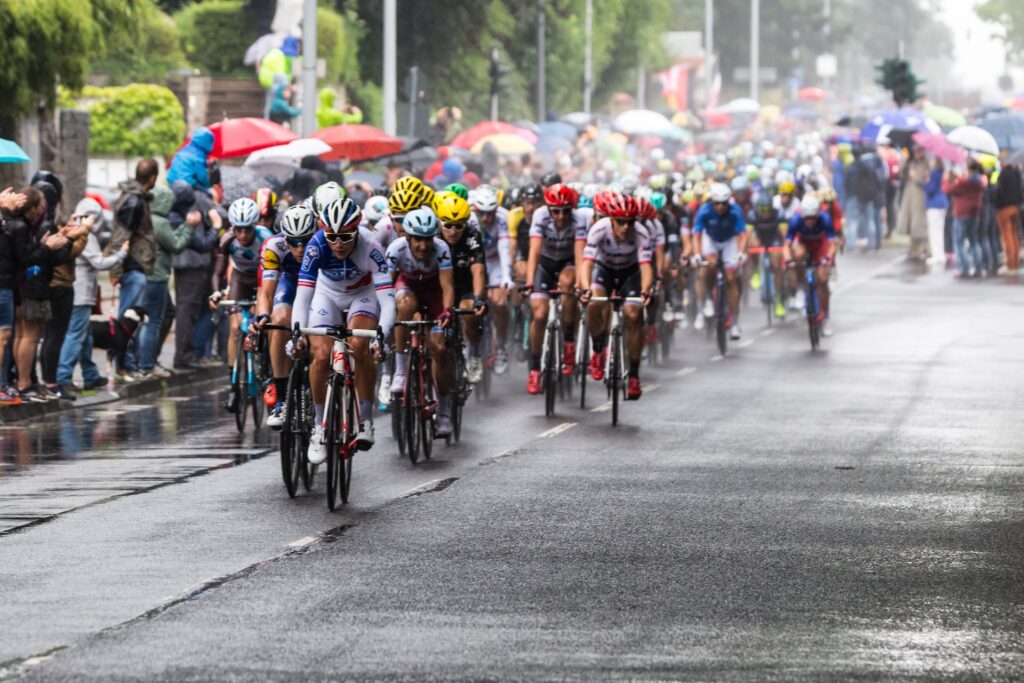
Introduction
The Tour de France, renowned as the pinnacle of professional cycling, has witnessed a remarkable transformation in recent years. African cyclists, once underrepresented in the race, have emerged as formidable contenders, breaking down barriers and inspiring a new generation of riders across the continent. This article explores the journey of African participation in the Tour de France, highlighting the challenges they have faced, the breakthroughs they have achieved, and the lasting impact they are making on the sport.
Historical Underrepresentation and Breakthroughs
Throughout the history of the Tour de France, African cyclists were noticeably absent from the race. Limited exposure to cycling, socio-economic challenges, and a lack of infrastructure and development programs in Africa contributed to this underrepresentation. However, in recent times, African riders have defied the odds and left their mark on the Tour de France.
African participation began with Abdel-Kader Zaaf in 1951, marking the first step towards inclusion. Subsequently, Tahar Cheriaa, an Algerian rider, participated in 1954, further breaking down barriers. These early trailblazers paved the way for future generations of African cyclists to showcase their talent on the international stage.
Factors Driving the Rise of African Participation
The rise of African participation in the Tour de France can be attributed to several key factors. Increased global interest in African athletes, along with the recognition of their endurance sports prowess, has brought African cyclists into the spotlight. The establishment of cycling development programs and initiatives in Africa has played a vital role in nurturing and identifying talent, providing the necessary platform for African riders to excel in international competitions, including the Tour de France. Additionally, heightened funding and support for African cycling teams have enabled them to compete at higher levels and gain valuable experience on the grandest stage of the sport.
Breakthrough Moments and Inspirational Figures
The Tour de France has witnessed several significant breakthrough moments for African cyclists, symbolizing their growing presence in the race. In 2015, Daniel Teklehaimanot from Eritrea etched his name in history as the first African rider to wear the prestigious polka dot jersey, awarded to the King of the Mountains. This achievement showcased his climbing prowess and ignited a sense of pride among African cycling enthusiasts.
Another remarkable milestone was achieved in 2013 when Daryl Impey, a South African cyclist, became the first African to wear the coveted yellow jersey, signifying the overall race leader. Impey’s feat shattered long-held perceptions of European dominance and further fueled the aspirations of African riders.
Impact and Aspirations for the Future
The impact of African participation in the Tour de France extends beyond the realm of cycling. African riders have become powerful symbols of resilience, determination, and breaking barriers. Their success stories inspire not only aspiring cyclists but also individuals from diverse backgrounds, showcasing the potential for greatness regardless of origin or background.
As African cyclists continue to make their mark on the Tour de France, they are igniting a passion for cycling across the continent. The achievements of African riders have created role models for aspiring cyclists and fostered a sense of belief that dreams can be realized through dedication and perseverance.
Looking forward, the growth of African participation in the Tour de France hinges upon sustained support and investment. It is imperative for governments, private sponsors, and cycling organizations to recognize the potential within Africa’s cycling community and provide the necessary resources for talent development. Continued investment in infrastructure, training programs, and equipment will enable African cyclists to compete at the highest level and further elevate their presence in the Tour de France.
Conclusion
The rise of African participation in the Tour de France represents a monumental shift in the sport’s landscape. African cyclists have overcome historical barriers and made their mark on the international stage, inspiring generations and reshaping perceptions of African excellence in cycling.
Through sheer determination, talent, and the support of development programs, African riders have shattered preconceived notions and proven their capabilities on the grandest stage of the Tour de France. Their breakthrough moments, such as Daniel Teklehaimanot’s polka dot jersey in 2015 and Daryl Impey’s yellow jersey in 2013, serve as lasting testaments to their achievements and highlight their climbing and overall race leadership abilities.
The impact of African participation extends far beyond the Tour de France itself. African cyclists have become powerful symbols of resilience and determination, inspiring aspiring riders not only within Africa but also across the globe. Their success stories transcend the sport, resonating with individuals from diverse backgrounds and inspiring them to pursue their own dreams and overcome obstacles.
The future holds immense potential for the further rise of African participation in the Tour de France. Continued support and investment are crucial to sustain this upward trajectory. Governments, private sponsors, and cycling organizations must recognize the importance of nurturing and developing African talent by providing funding for training facilities, coaching programs, and access to high-quality equipment. Additionally, investing in cycling infrastructure, such as dedicated tracks and safe road networks, will create an enabling environment for the growth of cycling across the continent.
As African riders continue to push boundaries and pedal towards new horizons, they embody the spirit of triumph and determination, leaving an enduring legacy that transcends the world of cycling. The rise of African participation in the Tour de France not only represents a victory for African riders but also symbolizes a step towards a more diverse, inclusive, and globally representative sport. The momentum generated by the rise of African participation has the potential to bring about lasting change, inspire future generations, and firmly establish Africa as a force to be reckoned with in the global cycling community.
- What you need to know about betting on eSports? - August 11, 2024
- Combining 27 Express with Traditional Betting - August 2, 2024
- The impact of WAFCON on Ghana’s local women’s leagues - July 29, 2024